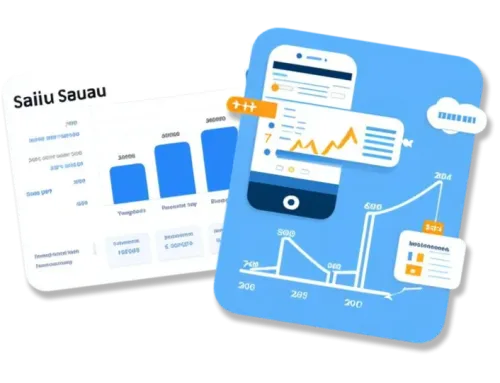In recent years, the IT recruitment industry has undergone a transformative shift due to the integration of artificial intelligence (AI) and automation. These technologies are revolutionizing how recruitment consultants operate, offering new tools and methodologies that significantly enhance efficiency and candidate experience. As AI and automation become more sophisticated, they are reshaping the recruitment landscape, leading to more streamlined processes and improved outcomes for both employers and job seekers.
AI-Driven Tools and Their Impact
AI-driven tools have become central to modern recruitment practices. One of the most notable applications is the use of chatbots for initial candidate screening. These AI-powered chatbots can engage with candidates 24/7, providing instant responses to inquiries and conducting preliminary assessments. By handling routine questions and screening tasks, chatbots free up valuable time for human recruiters, allowing them to focus on more complex aspects of the hiring process. This not only speeds up the recruitment cycle but also enhances the candidate experience by providing timely and consistent communication.
Another significant advancement is AI-driven job matching. Traditional recruitment methods often involve manual matching of candidates to job descriptions, which can be time-consuming and prone to human error. AI algorithms, however, analyze vast amounts of data from resumes, job postings, and other sources to identify the best fit between candidates and roles. These algorithms consider various factors, including skills, experience, and even cultural fit, to make more accurate recommendations. This approach reduces the likelihood of mismatches and increases the chances of finding candidates who are well-suited to the job and the company culture.
Automation in Recruitment Processes
Automation plays a crucial role in streamlining various aspects of the recruitment process. Automated scheduling tools, for example, simplify the coordination of interviews and meetings between candidates and recruiters. These tools can automatically detect available time slots, send calendar invitations, and reschedule appointments if necessary. This reduces the administrative burden on recruiters and minimizes scheduling conflicts, leading to a smoother and more organized hiring process.
In addition to scheduling, automation can also handle repetitive tasks such as resume screening and candidate tracking. Automated systems can quickly sift through large volumes of resumes to identify those that meet specific criteria, reducing the time spent on manual review. Similarly, applicant tracking systems (ATS) equipped with automation features can track the progress of candidates through the hiring pipeline, ensuring that no steps are overlooked and that all candidates are evaluated consistently.
Enhancing Efficiency and Candidate Experience
The integration of AI and automation in recruitment is not just about increasing efficiency but also about enhancing the overall candidate experience. Candidates today expect a fast and responsive recruitment process, and AI-driven tools help meet these expectations by providing timely feedback and streamlined interactions. For instance, AI chatbots can offer immediate updates on application status, answer questions about the recruitment process, and even provide personalized feedback to candidates.
Moreover, the use of AI and automation can improve the quality of hire by ensuring that candidates are assessed more objectively and accurately. AI algorithms reduce biases that can occur in manual screening processes, leading to fairer evaluations and better alignment between candidates’ skills and job requirements. This not only benefits employers by ensuring they find the best talent but also helps candidates by providing a more transparent and equitable recruitment process.
Future Outlook
As AI and automation continue to evolve, their impact on IT recruitment consulting is likely to grow even further. Future advancements may include more sophisticated AI algorithms that provide deeper insights into candidate potential, enhanced automation tools that integrate with other HR systems, and greater emphasis on data-driven decision-making. Recruiters who embrace these technologies will be better positioned to navigate the complexities of the modern job market and deliver superior results for their clients and candidates alike.
In summary, the rise of AI and automation in IT recruitment consulting is transforming how recruitment processes are managed. By leveraging these technologies, recruiters can enhance efficiency, improve candidate experiences, and make more informed hiring decisions. As the field continues to advance, staying abreast of these innovations will be crucial for achieving success in an increasingly competitive recruitment landscape


